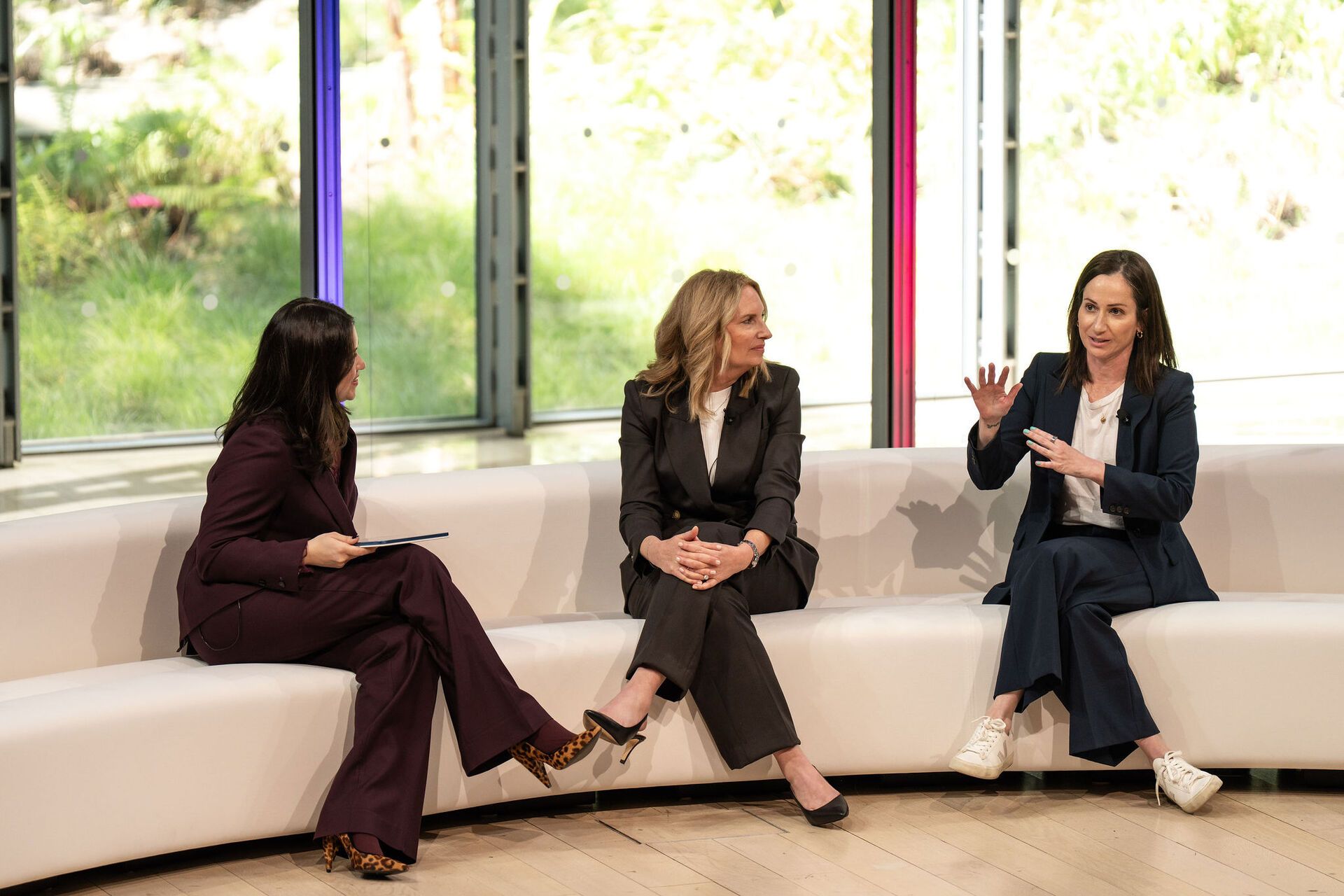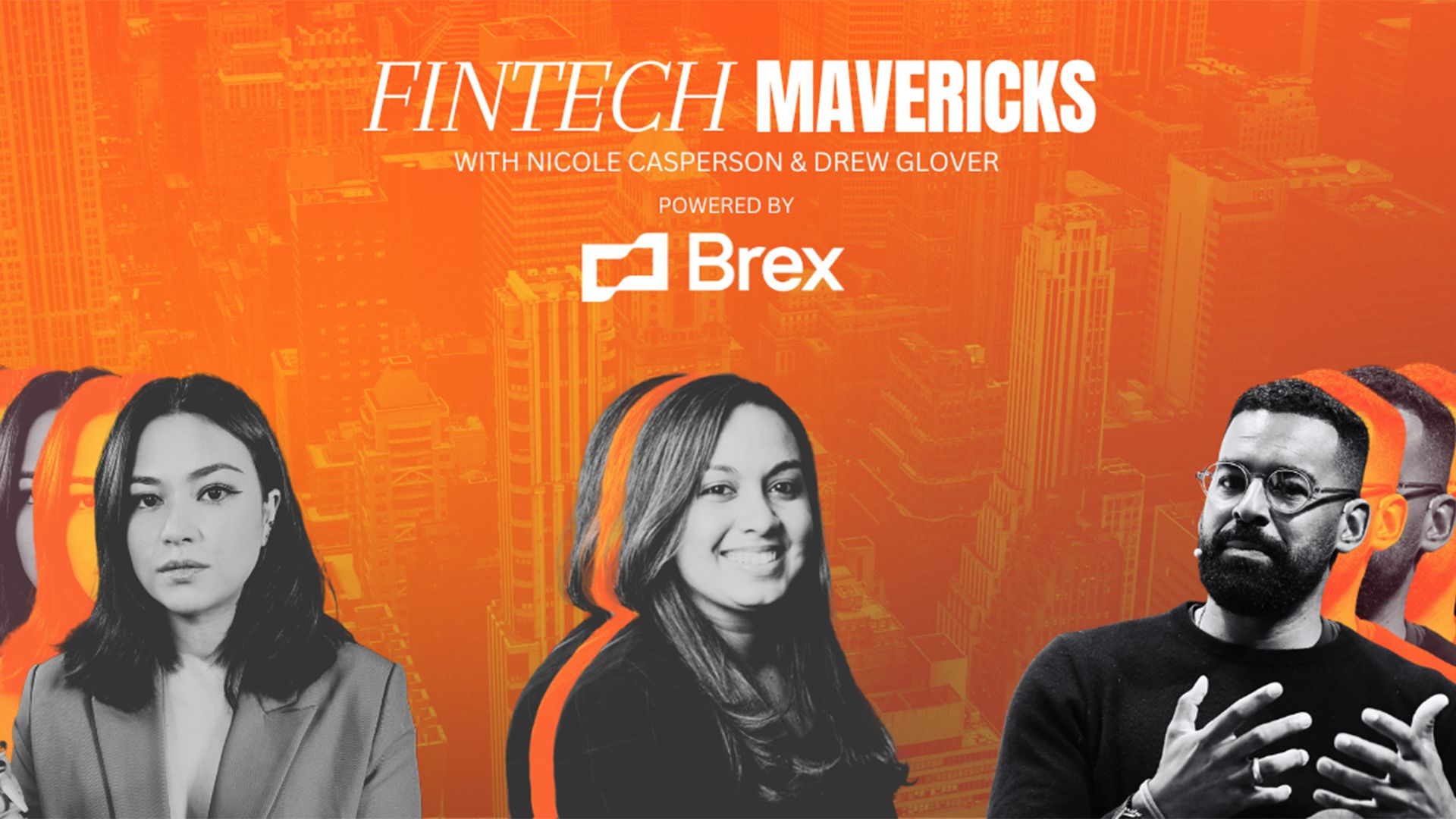- Fintech Is Femme
- Posts
- 🤑 What 1.3 Billion People Have in Common
🤑 What 1.3 Billion People Have in Common
New global data shows the financial struggles of the ‘global majority’ are the same ones millions of Americans face. Here’s why fintech’s role is bigger than ever.

Hi fintech fam, 💜
You know that frantic crunch before a long weekend, when you’re trying to wrap everything so you can actually enjoy a little time off? That’s me today, which is why I’m sliding into your inbox a little later than planned. But hey—I’m my own publisher, so I’m giving myself grace.
Why the delay? I spent the entire day scripting and filming for a brand-new project I’ve been working on. I’m finally launching my first-ever digital course—on content, GTM, and how to grow a distribution list that actually converts. Basically, I’m giving up my playbook. Stay tuned—drop coming soon.
And speaking of historic firsts: we’re building another one together—the first-ever women-led AI in fintech summit. On October 8 in San Francisco, Fintech Is Femme Leadership Summit: AI Edition is where the industry’s boldest founders, investors, and operators will be in the room rewriting the future.
⚡️ Early bird tickets are live now, but there are only 200 seats. Grab yours here before they’re gone.
Now, it’s a long summer weekend before the fall madness. So let’s get into it with a new report, a new podcast, and one throwback episode.
#TRENDING
What’s Up In Fintech
Every Thursday, I bring you the latest fintech news and trends, delivering the key insights that matter most to the industry—and you.

Fireside chat with Tala Chief Technology Officer Kelly Uphoff and SpringFour Founder & CEO Rochelle Nawrocki Gorey at the Fintech Is Femme Leadership Summit NYC.
Access is the real opportunity in fintech. The question we have to ask is: who gets it, and who’s still left out?
This week, Tala dropped a new global impact report with 60 Decibels that answers that question — and it turns out, the financial struggles of the “global majority” aren’t all that different from what we see here in the U.S.
The Universal Challenge of Access
According to the World Bank’s Global Findex, 1.3 billion adults worldwide still lack financial accounts. And here in the U.S., 49 million adults don’t have conventional credit scores. That means they’re invisible to banks and effectively shut out of mainstream credit. Tala’s borrowers in Kenya, Mexico, and the Philippines share that same reality: half reported having no prior access to loans before Tala.
The parallel is clear: whether you’re in Nairobi or New Orleans, lack of access keeps people from building wealth.
Why It Matters: From Emergencies to Healthcare
The financial stress is not abstract. In the U.S., 59% of adults don’t have $1,000 saved for an emergency, and 11% say they skip healthcare due to cost. Tala’s report shows that access to credit doesn’t just help people manage bills — it changes lives.
Eighty percent of Tala borrowers reported improved ability to cover emergencies. More than half in Kenya and 41% in Mexico said they can now access healthcare when needed. Credit isn’t just financial — it’s physical well-being.
Financial Control = Quality of Life
The biggest signal from this report? Choice changes everything.
82% of Tala borrowers said their overall quality of life improved.
81% reported decreased financial stress.
50% said they were able to increase their savings.
And for women, the results are especially powerful:
80% reported greater self-confidence.
59% gained more influence in household decision-making.
88% reported increased business earnings when loans were used for entrepreneurship.
That’s not just financial inclusion. That’s agency.
The Universal Entrepreneurial Spirit
Access to credit doesn’t just fund survival — it fuels ambition. Globally, 34% of Tala borrowers used their loans to grow a business. Of those, 87% reported higher earnings, and 82% said their outlook improved. The most common use of funds? Inventory — the raw material of commerce.
Compare this to the U.S., where small business owners often rely on personal credit cards and are more likely to be denied loans than non-business owners. The struggles — and the ambitions — are the same. The difference is access.
Here’s what Tala’s report makes impossible to ignore: financial access is not a developing world issue. It’s a global one. Americans and the global majority are on parallel tracks — both fighting to build resilience, access healthcare, and grow businesses in systems not designed for them.
AI and digital platforms can change that. But only if the systems are built to expand access, not replicate old biases.
Tala’s impact report shows what’s possible when you start from the ground up:
Financial resilience: 77% of borrowers said they’re more resilient.
Sustainability: 70% don’t view repayments as a burden.
Trust: 98% said they’ve never experienced unexpected charges.
Why This Matters for Fintech
The fintech industry has two paths in the AI era. One is to optimize efficiency for those already well-served. The other is to build new rails for the billions left out. Tala is proving the latter is not only possible, it’s profitable.
The universal financial story isn’t about the top 1%. It’s about the billions — in the U.S. and abroad — who just need fair access to participate. And the data is clear: when people are trusted with financial choice, they deliver.
This isn’t just Tala’s story. It’s fintech’s mandate.
Check out Tala’s full report here.
#2 Fintech Mavericks x Mastercard: Stefany Bello on Building Bridges Between Startups & Giants
When you think of Mastercard, you probably think global scale. But behind that scale are leaders like Stefany Bello, SVP of Digital Partnerships, Fintechs & Enablers, who’ve spent their careers making sure innovation doesn’t stop at the top.
Since joining Mastercard in 2009, Stefany has:
Helped deploy Samsung Pay across 25+ countries.
Built digital products that opened access for millions across Latin America and Asia.
Earned a patent for a global aid distribution network.
Championed women and non-binary builders in Web3.
But what stood out most in our conversation is how she sees her role:
“To me, you have to be where the customer is at. You have to listen. Every fintech has a different need — and our job is to guide them through it. Innovation doesn’t happen in silos. The magic comes from co-creation.”
The Future She’s Betting On
Stefany shared the three areas she’s most excited about:
Agentic commerce – shopping powered by AI agents that anticipate needs and embed payments seamlessly.
Stablecoins for payments – faster, cheaper, cross-border transactions that unlock new business models.
Small business fintech – where she says the industry has barely scratched the surface.
“Innovation isn’t just about the next shiny thing. It’s about creating sustainable and scalable solutions that can impact millions of people.”
Advice for Founders
For early-stage fintechs wondering if they’re ready to partner with a giant like Mastercard, Stefany keeps it simple:
“Don’t underestimate the power of storytelling. Who you are, where you want to go, and why it matters — that’s how you open doors. And when you’re clear, we can co-create the path together.”
Why This Matters
As Stefany reminded us, the fintech partnerships that define the next decade won’t just be about scale — they’ll be about access.
Whether it’s a gig worker in the U.S. or a small merchant in Guatemala, building bridges between startups and giants is how financial services actually transform.
🎧 Hear the full conversation with Stefany Bello on Fintech Mavericks, powered by Brex → here or wherever you get your podcasts.
#3 Breaking Barriers in Credit with Angel Rich, CEO of CreditRich

Live from the Fintech Is Femme Leadership Summit on April 23 at The Times Center
At the last Fintech Is Femme Leadership Summit in New York, I opened the day with someone reshaping fintech from the inside out: Dr. Angel Rich, founder and CEO of CreditRich.
Dubbed “the next Steve Jobs” by Forbes and awarded the Presidential Lifetime Achievement Award by President Biden, Angel isn’t here to fit into the system—she’s rebuilding it.
Her insight? Most Americans were never taught how credit really works. So she reverse-engineered the FICO algorithm and built a platform that helps users improve their credit in real time using AI, automation, and behavioral finance.
“If you can create a system that simply helps people pay their bills on time, you could dramatically raise their credit scores,” she said.
CreditRich isn’t just another budgeting app. It’s a credit-building engine that rounds up purchases, targets high-impact liabilities, and delivers custom financial pathways—all while integrating directly with Experian, Equifax, and Visa.
And she didn’t wait for VC funding to scale. She picked up the phone, pitched top execs, and built revenue-driving partnerships that now value the business at $1 billion—with a $100M Series B in motion.
“Everyone told me it couldn’t be done. So I decided to just pick up the phone and do it anyway,” she said. “You don’t wait for someone to find you—you go find them.”
Angel’s playbook:
Start at the top. No warm intros, no gatekeepers.
Build for enterprise scale, not just consumer hype.
Stop asking for permission—and design your leadership accordingly.
Next up? She’s launching Credit Cooks, a nationally syndicated show bringing real financial tools to underserved communities. And then? She plans to sell CreditRich and start again.
“We can’t afford to sit this one out,” she said. “The economy is changing—and people need real tools, not empty promises.”
If you missed her powerhouse keynote at the Fintech Is Femme Leadership Summit, you’re in luck—I’ve decided to release the full live interview as a special episode of Humans of Fintech — a throwback to one of the most powerful moments from this year’s Fintech Is Femme events.
This conversation with Dr. Angel Rich is too good not to share. We talk about how she reverse-engineered the credit system, why she refuses to wait for permission, and how she built a billion-dollar fintech on partnerships—not pitch decks.
Watch the full fireside chat live from our mainstage here.
MARK YOUR CALENDARS
Join us every Thursday to keep up with fintech events!
WEDNESDAY, OCTOBER 8
[SAN FRANCISCO] FINTECH IS FEMME LEADERSHIP SUMMIT: AI EDITION
We’re bringing together 200 founders, investors, and operators — alongside partners like Stripe, Brex, Middesk, and GoodFin — for the Fintech Is Femme Leadership Summit: AI Edition.
It’s the first woman-led AI summit for fintech — built for people who are actually in the trenches scaling, fundraising, and leading right now.
I’d love to see you in the room. Seats are capped at 200, and it’s approval-only — so if you want in, now’s the time to lock your spot.
FRIDAY, SEPT 19
Join us at Civic Hall in New York City on September 19, during Climate Week NYC, for the Emerald Climate Fintech Summit, co-hosted by Wallet Max and Fintech Is Femme.
This one-day event dives into why climate tech is fintech, and why building financial systems that embed sustainability isn’t optional—it’s necessary and profitable. RSVP here.
#SPONSORED
A New Way to Invest is Delivering Big Results
VCs back startups for outsized returns. Everyday investors wait. But rule changes fixed that. Take Revolut. In 2016, 433 people averaged a $2,370 stake. Today? Its valuation is up 89,900%. No wonder 10K+ people and the investors behind Uber and Venmo are taking the chance on Pacaso. Founded by a former Zillow exec, they’ve made $110M+ in gross profit to date.
Paid advertisement for Pacaso’s Regulation A offering. Read the offering circular at invest.pacaso.com. Reserving a ticker symbol is not a guarantee that the company will go public. Listing on the NASDAQ is subject to approvals.
FINTUNES

LET’S CONNECT
📰 Share this newsletter with a friend and start growing your network.
🔗 Connect with me on LinkedIn for daily insights on leadership.
🤝 Grow your business through content & community by partnering with me.
📣 Promote yourself to 50,000 subscribers by sponsoring this newsletter.
🎤 Host an epic event by booking me as a speaker, moderator, or emcee.
📚 Increase your expertise by ordering your copy of my book, Fintech Feminists: Increasing Inclusion, Redefining Innovation, and Changing the Future for Women Around the World.
⭐️ P.S. If you’ve read Fintech Feminists (or listened to the audiobook!), I’d be so grateful if you could take 30 seconds to leave a review or rating on Amazon here. Your support means the world to me. A million thanks in advance!
That wraps up today’s edition—thanks for reading! Until next week, keep innovating and challenging the status quo. See you Tuesday!
Love,
Nicole 💜




